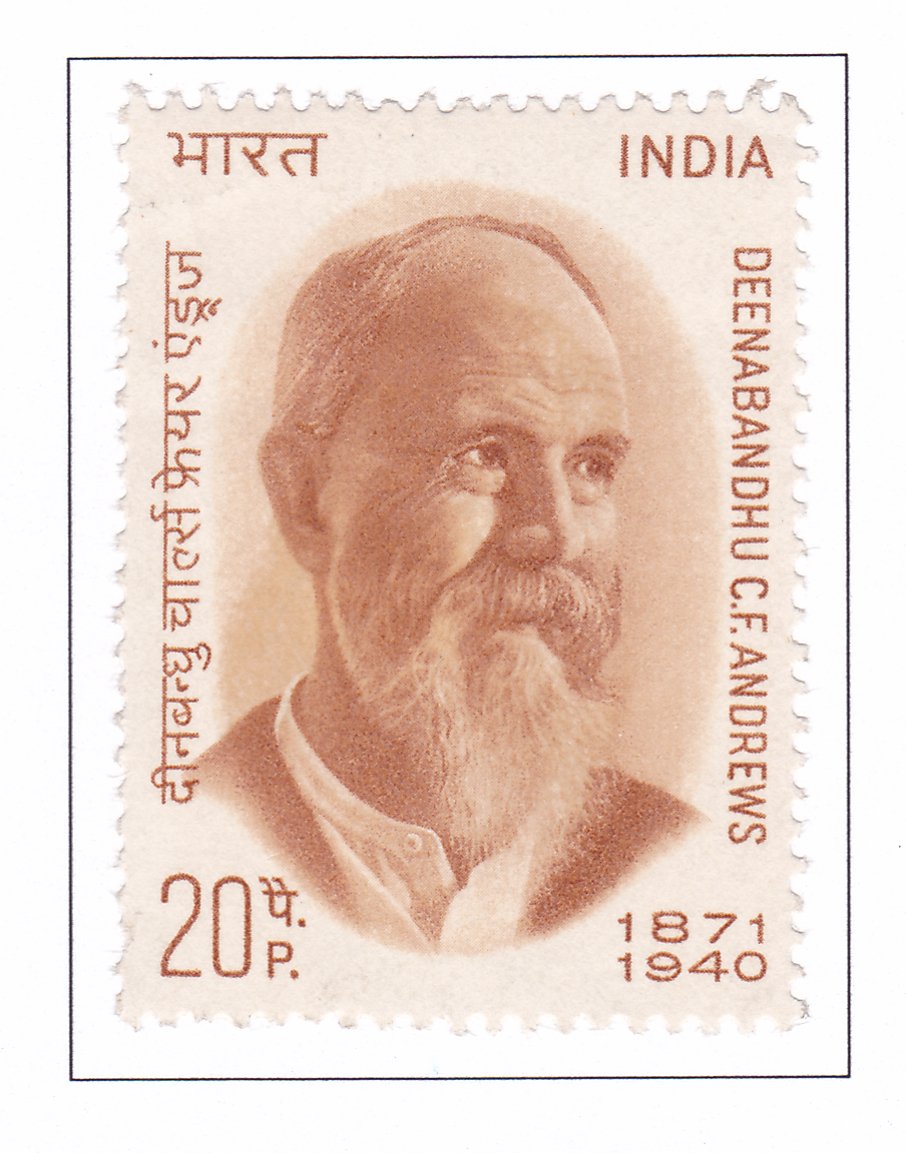Deenbandhu Charles Freer Andrews

Technical Data
| Stamp Set | Birth Centenary |
|---|---|
| Date of Issue | February 12, 1971 |
| Denomination | 20 nP |
| Quantity | 3,000,000 |
| Perforation | comb 13 x 13½ |
| Printer | Security Printing Press, Nashik |
| Watermark | No Watermark |
| Colors | Brown |
| Catalog Codes |
Michel IN 520 Stamp Number IN 535 Yvert et Tellier IN 319 Stanley Gibbons IN 634 |
| Themes | Anniversaries and Jubilees | Famous people | Men | Religion |
Deenbandhu Charles Freer Andrews, affectionately known as ‘Deenbandhu Andrews,’ epitomized the spirit of Christian compassion and humanitarianism. Despite being born in England, Andrews’s deep love for India led him to fully immerse himself in the struggles and aspirations of its people. Born on February 12, 1871, in Newcastle-on-Tyne, Andrews was raised in a devout household where the values of prayer and meditation were instilled in him from a young age.
His academic brilliance and thirst for knowledge were evident early on, and he excelled in his studies, earning scholarships and accolades. After graduating from Pembroke College, Cambridge, Andrews embarked on a career in teaching theology. However, his calling took him beyond the confines of academia to the heart of India.
Arriving in India in 1904 as a Christian missionary, Andrews was deeply troubled by the social injustices and inequalities prevalent in Indian society. He became a staunch advocate for India’s independence, aligning himself with political leaders such as Dadabhai Naoroji and Mahatma Gandhi. His encounter with Rabindranath Tagore further deepened his affinity for India, and he regarded Tagore as his spiritual mentor.
Andrews’s humanitarian efforts extended beyond India to South Africa and Fiji, where he fought against racial discrimination and worked tirelessly to improve the plight of Indian laborers. His selfless dedication to the welfare of the marginalized earned him the title ‘Deenbandhu’ or ‘Friend of the Humble.’
Throughout his life, Andrews remained a steadfast supporter of Mahatma Gandhi and his principles of non-violence. He believed that India’s liberation would come through Gandhi’s leadership and tirelessly advocated for India’s independence.
Andrews’s life was guided by his Christian faith, and he saw his actions as a reflection of Christ’s teachings of love and compassion. His unwavering commitment to serving the oppressed earned him the title of ‘Christ’s Faithful Apostle.’
Charles Freer Andrews passed away in Calcutta in 1940, leaving behind a legacy of selfless service and unwavering devotion to India. The Posts and Telegraphs Department pays tribute to this great friend of India by issuing a special commemorative stamp on the occasion of his birth centenary, honoring his indelible contribution to the nation’s history and spirit.
